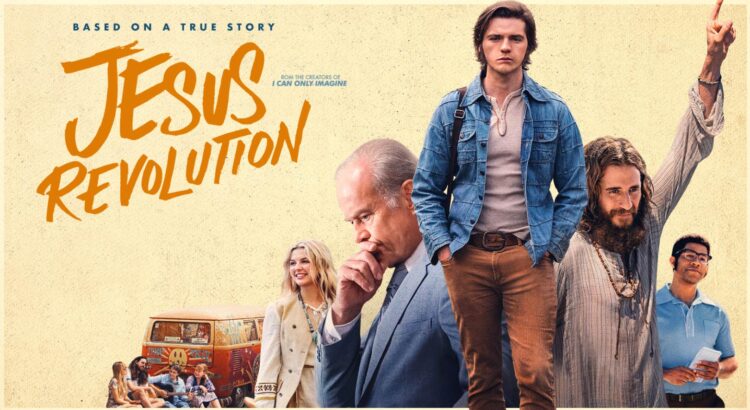The Jesus Revolution film is based on one of the greatest religious awakenings in American history. It began in California during the 1960’s and quickly spread across the globe, embracing the counter culture of the youth at the time and combining it with the message of Christianity. I was familiar with the rise of Hippie culture and their advocation for nonviolence; the call for “making love, not war”, but I had no idea that the movement had married itself into Christianity.
Obviously, this film is centered around the message of Christianity, however, it doesn’t shy away of representing the Christian faith in its many forms; some more ugly that others. This was an aspect of the film that I greatly appreciated. Religion is a complex, faceted entity, where one individuals wrong may be another’s right and this film portrayed this very well.
Jesus Revolution follows a young man by the name of Greg Laurie on a journey through his youth. It explores the ups and downs of adolescence as Greg tries to find “truth”, in other words, what’s real, what will stay, and where he can find belonging. He ends up finding this belonging in Calvary Church, though he soon realizes that this new found home is far from perfect.
Throughout the film there is a reoccurring presence of a character by the name of Josiah; a New York Times journalist who chronicles the Jesus Revolution as it spreads throughout California and beyond. In reality, there was an article published in the New York Times. I was curious as to what the article spoke about in regards to the movement and have copied a section of the article down below as well as the hyperlink to the full reading for anyone who’s curious. I found it to be a very energetic and entertaining read.
I’d recommend Jesus Revolution to anyone who is curious about the merge of Hippie culture and Christianity, or anyone who’s curious about religion in general.
“The Jesus revolution rejects not only the material values of conventional America but the prevailing wisdom of American theology. Success often means an impersonal and despiritualized life that increasingly finds release in sexploration, status, alcohol and conspicuous consumption. Christianity — or at least the brand of it preached in prestige seminaries, pulpits and church offices over recent decades — has emphasized an immanent God of nature and social movement, not the new movement’s transcendental, personal God who comes to earth in the person of Jesus, in the lives of individuals, in miracles (see box, page 60). The Jesus revolution, in short, is one that denies the virtues of the Secular City and heaps scorn on the message that God was ever dead.”
https://content.time.com/time/subscriber/article/0,33009,905202-1,00.html


